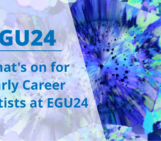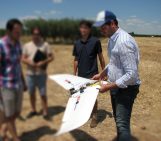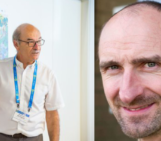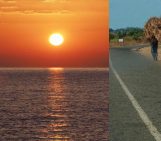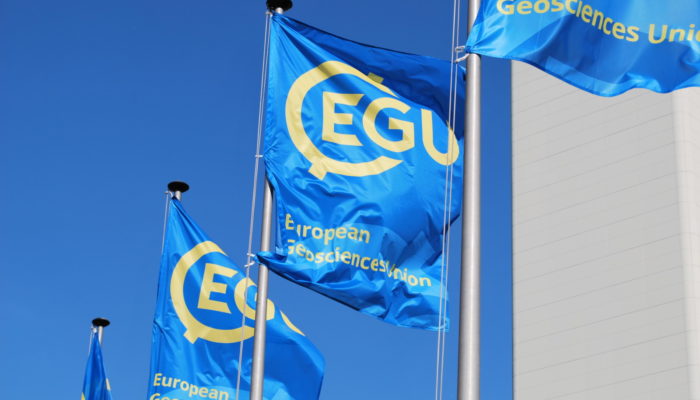
The EGU Education Committee has opened a call for new members to join. Positions on the committee are open to anyone with an interest in and passion for improving learning at the interface between geoscience and educators, so long as they are an EGU member. In particular, the Committee is keen to include the voices of Early Career Scientists (ECS). Details on the application process are detailed here.
So that’s your opportunity to help guide the future of EGU’s science-education initiatives, but who are the Education Committee and what are these initiatives? To answer the first, the EGU Education Committee consists of scientists and educators from different countries, who together seek to enhance geo-scientific learning at both school and university-level education. To give you an idea of what you can get involved with, we’ve listed the top five programmes and activities we think you should know about below!
1. Geoscience Information For Teachers (GIFT)
Geoscience Information For Teachers (GIFT), brings together educators and scientists to foster understanding, share knowledge, and grow networks. In particular, it gives teachers the opportunity to interact with scientists and their research, removing the barriers they may otherwise face when approaching academia. Occurring alongside – and tied to – international geoscience conferences, the largest of these events is the EGU General Assembly GIFT workshop. Before 2020 the General Assembly workshop took place in Vienna during the same week as the EGU General Assembly. Adapting to the COVID-19 pandemic, the event has since become virtual. The success of GIFT has led to similar events being partnered with other international events in South Africa, India, and Mexico.
2. Funding for Higher Education
Higher Education is also supported, with teaching grants being offered to educators at the university-level since 2020 where grants of up to €750 were awarded. Grant awardees developed self-contained teaching packages with the aim to build geoscience teaching resources. Following the programme’s success, in 2021 the total funding amount was increased to €5000. Previous grant winners have covered topics from methods in environmental modelling and monitoring to virtual tours and building resources tackling gender bias.
3. Geoscience Field Officers
A key initiative led by the Education Committee is the Field Officer programme, which provides professional development for school teachers who educate in geoscience. The programme delivers training courses for Field Officers who then lead support for teachers in their own countries who may be unfamiliar with geoscience at a regional level by providing materials and guidance. So far Field Officers are based in Albania, France, Hungary, Italy, Portugal, Spain, Turkey and with ambition to expand the initiative to other European countries. The most recent call for Field Officers has just closed, however if you’re interested in getting involved you can either contact the Committee or subscribe to the EGU newsletter which features all such calls.
4. Education Fellowships
The Committee is also investing in Early Career Scientists (ECS) passionate about developing better interactions between science and education: since 2021 the Education Committee has offered EGU Education Fellowships, where ECS work alongside the Committee to improve the Union’s approach to education. Fellows work alongside the Committee, developing their own education strategies and providing feedback to enhance how the Union approaches science-education.
Don’t forget that ECS EGU members can also apply to be on the Committee and have a say on the Union’s future in education!
5. Teacher-Scientist Pairing
A collaborative effort by both the Education and Outreach Committees, the Teacher-Scientist Pairing scheme brings together scientists and school teachers to build engaging lesson plans which deliver scientific expertise to the classroom. The result: scientists interact directly with students through hands-on activities, making them feel like real scientists exploring current knowledge, under the guidance of their teacher. Debuting at the online vEGU21 General Assembly, its success has motivated plans to expand the scheme over the next few years.
….and more!
The Education Committee also supports workshops which help bring science closer to education, providing development opportunities for both educators looking to engage with research, and scientists seeking to support and inspire teaching. To this end, the Committee also hosts a community-driven database of resources that supports geosciences education, with material spanning subjects from pollution to climate change and beyond, and searchable by both the target age group and the type of activity.
You can get involved with any number of these programmes by contacting the Education Committee (email education@egu.eu). Or, if you fancy having a say in the future direction of the Committee and the development of education programmes, you can apply to join here.

